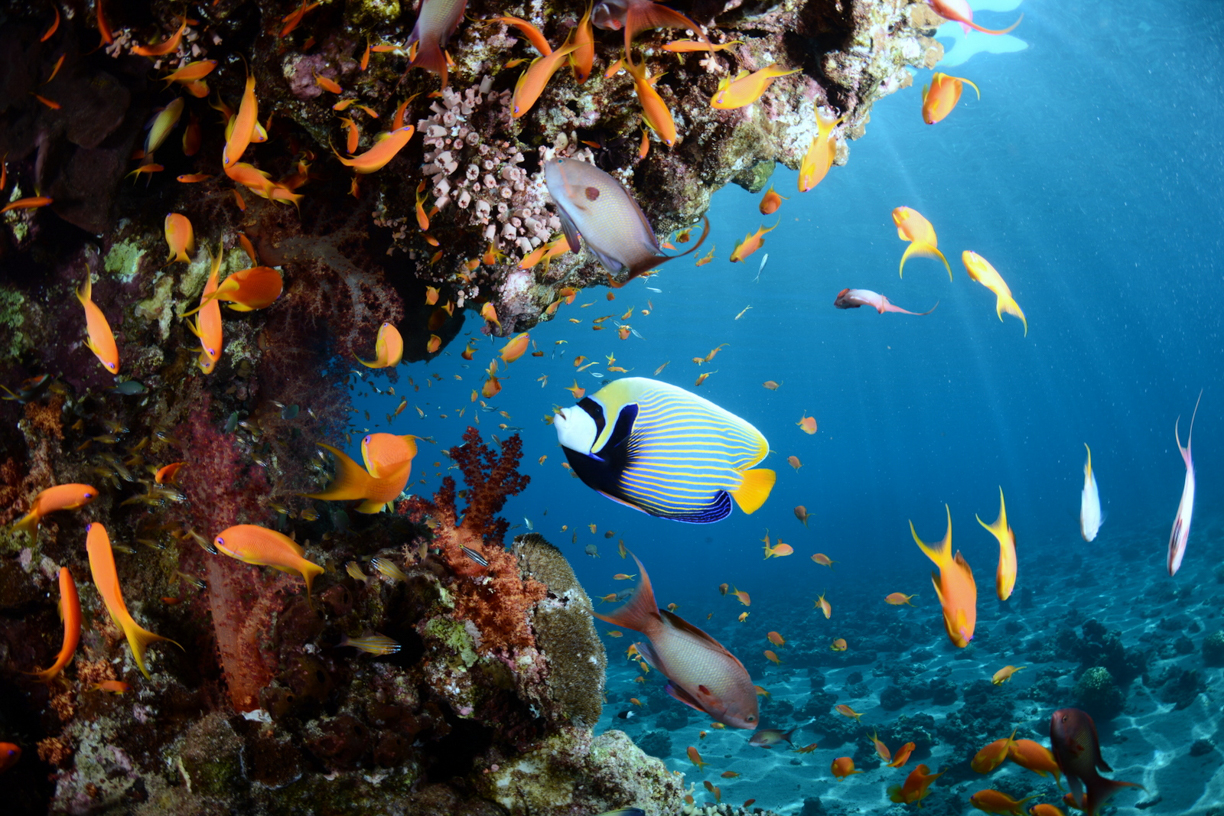Save The Red Sea Corals from new oil deals
In the upcoming UN Climate Convention at the Sharm Elsheikh (COP 27) a coalition of NGOs will take the conference participants on a short cruise and snorkeling tour to show them the magnificent coral reefs in the Northern Red Sea, explain their unique properties and the dangers they face. This is a great opportunity to learn about the extraordinary qualities of these reefs, how can they survive the rising sea temperatures and what the risks are of losing them due to oil spillage from new shipping deals, and learn about the damage that such deals could do to the local economy.
Why is it so important to protect the coral reefs in the Gulf of Aqaba/Eilat in the Northern Red Sea?
The rising sea temperatures have caused a phenomenon known as “thermal bleaching”. This has destroyed major parts of the world’s coral reefs but in the Gulf of Aqaba, due to natural selection, the reefs have demonstrated remarkable resistance making them unique amongst the world’s corals. As temperatures continue to rise this part of the Northern Red Sea can become a refugee for world corals. Their biodiversity and natural beauty of coral reefs are rightly famous and generate a significant income for the tourist industry and are the livelihoods of many of the coastal communities in the area.
Despite the unique ability of the coral reefs to survive the effects of global warming they cannot withstand the damaging effects of pollution. At present the Gulf of Aqaba is outside the main global shipping routes. To protect the reefs, it must stay that way.
At present only few oil tankers pass through Eilat’s port every year. The Europe Asia Pipeline Company (EAPC) – Med-Red Land Bridge deal will increase this to 60-70 a year. The EAPC is an Israeli governmental company, and it operates a bi-directional oil pipeline that runs for 254 kilometers (158 miles) between Eilat on the Red Sea and Ashkelon on the Mediterranean shore.
The company has been pushing a deal to increase their capacity by 20-30 times the present rate. Even if a contingency plan was approved this would still greatly increase the risk of dangerous spills. To illustrate the dangers here, we only need to consider that a spill of 1% from a oil tanker, would spread to the entire Gulf and result in irreparable damage. In short, it will only take a minor incident to result in an ecological disaster.
Should such an event take place it would be catastrophic for the local economies. In Eilat alone there is an annual income of 7.5 billion shekels from tourism. In the wider region of Aqaba and the Sinai Coast, which is visited by 15 million tourists every year, more than 80% of the workforce are employed in the tourist industry. But the effects would be felt yet further: A major spill would result in desalination plants having to shut down with the consequence of endangering the provision of clean drinking water.
In the face of these dangers a group of 30 coalitions have come together, comprised of local authorities, NGOs and thousands of individual citizens to raise awareness of the dangers posed to the Northern Red Sea and its unique Coral Reefs. They are united in opposing the EAPC- Med-Red L.B. deal. Together with 288 distinguished scientists from around the globe they have signed a petition calling for the EAPC deal to stopped and any other deal that will expand oil shipping through Eilat.
They are not alone. The Ministry of Environment Protection in Israel holds a similar position as shown in their policy of ‘Zero surplus of pollution risks to the Gulf of Eilat/Aqaba’. This position was adopted by Israeli state’s attorney when the coalition appealed to the courts. The coalition is now calling on the government to adopt a policy of reducing pollution risks to the coral reefs and the beaches the Red Sea.
For this to succeed and for the Coral Reefs to be protected the coalition must reach out to the international community and call on them to support this campaign.
You can help this campaign by taking part in the cruise and snorkeling tour. This will take place near Sharm el Sheikh, where you will witness with your own eyes the beauty, the richness, and the diversity of the Coral Reefs. You will then learn why they must be protected from the dangers they face.
To take part please contact one of the: following
Mor Gilboa, Zalul CEO, 972-52-368963, mor@zalul.org.il
Nadav Shashar, Marine Biologist, Chairman, Eilat Conservation Society, 972-50-2029734, nadavsh@bgu.ac.il
Arbel Youval, Zalul Deputy Director, 972-545488240 youval@zalul.org.il
Itamar Shahar, EcoPeace, 972 – 527476476, itamar@ecopeaceme.org
You can read more about the history of this campaign here, you can sign the petition here, as well as read the letter written by the distinguished scientists.
